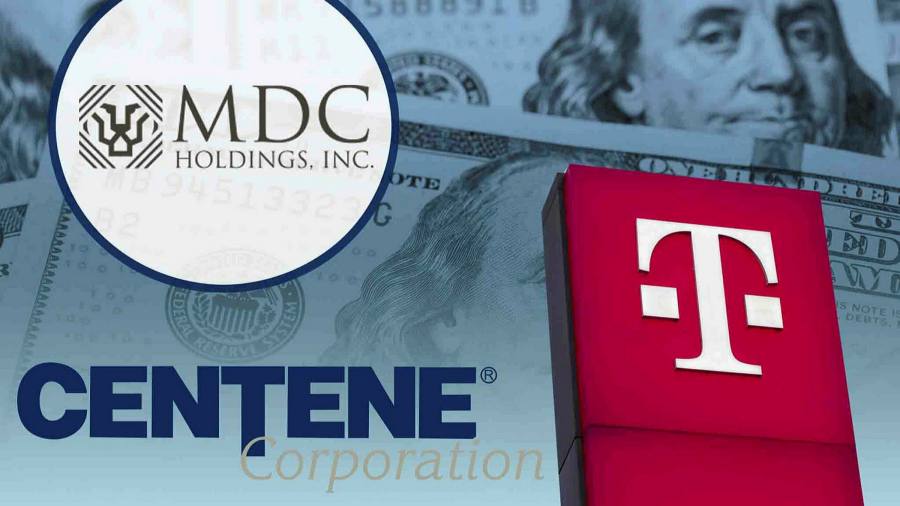[ad_1]
It has never been cheaper for companies with a “junk†credit rating to borrow cash in the US, as the voracious appetite from investors for riskier debt sends the interest rates paid on recent bond deals to record lows.Â
Health insurance company Centene Corporation became the latest junk-rated issuer to secure a borrowing cost below 3 per cent this week, wiping more than $40m from its annual interest bill. It raised $2.2bn at a coupon of 2.5 per cent for a 10-year bond.Â
The borrowing cost matched the historic low for a 10-year bond set by housebuilder MDC Holdings on a smaller $350m deal at the start of January. Deutsche Telekom’s US telecoms provider T-Mobile now holds the record for the lowest coupon ever for a junk issuer, according to data from Refinitiv, after it raised $1bn through a five-year bond at 2.25 per cent in January.Â
Carmaker Ford also joined the sub-3 per cent club this week, with its credit financing arm issuing a seven-year bond offering a coupon of 2.9 per cent.Â
“In our mind a 3 per cent yield is just ludicrous,†said Tom Krasner, co-founder of Concise Capital Management. “We never would have imagined buying things at a 3 per cent yield in our entire career.â€
The spate of deals comes as junk bonds have rallied strongly after a pandemic-induced sell-off last early last year. Yields tumbled below 4 per cent this week for the first time, as the price of the debt soared, according to an index run by Ice Data Services.Â
“It’s amazing,†said Stephen Philipson, head of fixed income and capital markets at US Bank. Investor optimism over a vaccine rollout and a reopening of the US economy had boosted expectations for corporate growth, even among lower-rated issuers, he said.
The Federal Reserve’s historic monetary policy intervention during the coronavirus crisis and its pledge to underpin markets has given investors the confidence to lend to higher-risk borrowers. Falling yields on higher-rated and sovereign debt have also pushed them to stretch down the credit rating spectrum in search of higher returns.Â
“Everyone has the same view and there is so much money chasing this rally,†said Philipson. “There is such a reach for yield.â€
Centene, MDC and T-Mobile all sit at the higher end of the junk-rated ladder, with ratings around double B, just one tier below the triple B cut-off to be considered investment-grade.
Nonetheless, the low borrowing costs are stark, less than the US government — widely considered to be one of the world’s safest borrowers — was paying on its 10-year debt at the start of 2019.Â
The hunt for higher-yielding assets to generate better returns has sent even triple C rated bond yields to an all-time low of just above 7 per cent this month.Â
Some bankers and investors raised concerns that the low cost of borrowing gives little compensation to investors, should the reopening of the US economy take longer than expected or not produce the growth spurt hoped for. That could constrain corporate earnings and put pressure on companies’ ability to service their debts, pushing down bond prices.Â
“All of this comes back to the Fed’s intervention in the market at an unprecedented level,†said Marty Fridson, chief investment officer of Lehmann Livian Fridson Advisors.
“It gives investors the sense that they can buy with impunity. The Fed is effectively putting a floor under the prices of anything they buy right now.â€
[ad_2]
Source link





